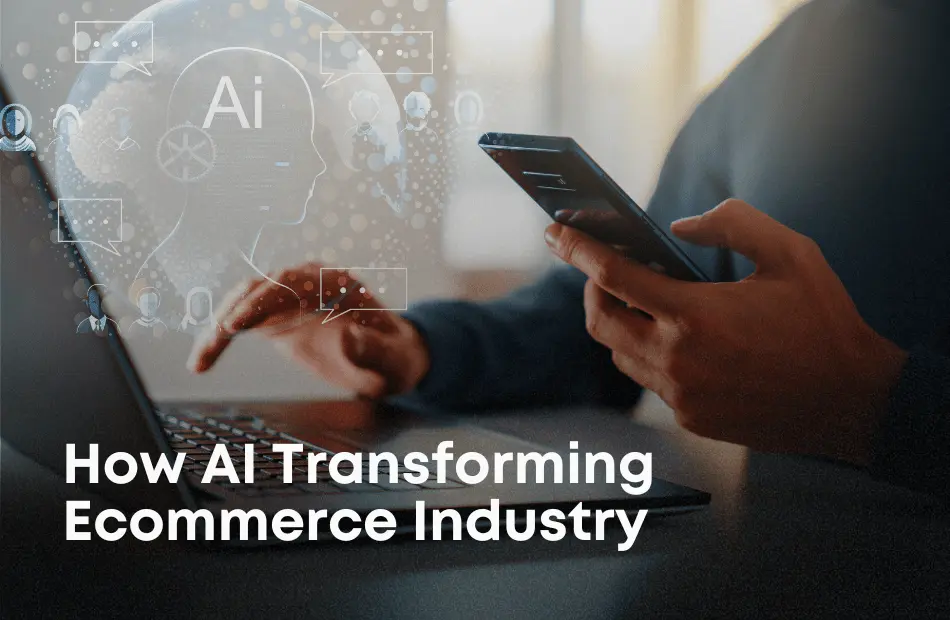The ecommerce industry has experienced tremendous growth in recent years, reshaping the way people shop and interact with brands. One of the key driving forces behind this transformation is artificial intelligence (AI). By harnessing the power of AI, businesses in the ecommerce sector are revolutionizing the customer experience, optimizing operations, and redefining the future of retail. In this article, we will explore how AI is changing the ecommerce industry and shaping its future.
- Personalized Shopping Experiences: AI enables ecommerce platforms to deliver highly personalized shopping experiences to customers. By analyzing vast amounts of customer data, including purchase history, browsing behavior, and preferences, AI algorithms can recommend tailored product suggestions, offer personalized discounts, and create customized shopping journeys. This level of personalization enhances customer satisfaction, drives engagement, and increases conversion rates.
- Chatbots and Virtual Assistants: AI-powered chatbots and virtual assistants have become essential tools in the ecommerce industry. These intelligent bots can interact with customers in real-time, answer queries, provide product information, and guide shoppers through the purchasing process. Chatbots offer 24/7 customer support, streamline customer service operations, and improve response times, leading to enhanced customer satisfaction and increased sales.
- Intelligent Search and Product Discovery: AI algorithms have revolutionized search functionalities on ecommerce platforms. Advanced machine learning techniques allow AI to understand user intent and deliver more accurate search results. AI-powered search engines can interpret natural language queries, provide relevant product recommendations, and even understand visual inputs for image-based search. These capabilities enhance product discovery, improve user experience, and drive conversions.
- Dynamic Pricing and Demand Forecasting: AI algorithms enable ecommerce businesses to optimize pricing strategies and maximize profitability. By analyzing market trends, competitor pricing, and customer behavior, AI can dynamically adjust product prices in real-time. Furthermore, AI-powered demand forecasting algorithms help businesses anticipate fluctuations in demand, optimize inventory management, and prevent stockouts or overstocking.
- Fraud Detection and Security: AI plays a crucial role in combating ecommerce fraud and ensuring transaction security. Machine learning algorithms can detect patterns and anomalies in customer behavior to identify potentially fraudulent activities. AI-powered fraud detection systems enable businesses to mitigate risks, protect customer data, and build trust with their audience.
- Supply Chain Optimization: AI-driven technologies such as predictive analytics and intelligent automation are transforming supply chain management in ecommerce. AI algorithms analyze historical data, market trends, and external factors to predict demand, optimize inventory levels, and streamline logistics operations. This leads to reduced costs, improved efficiency, and faster order fulfillment.
- Enhanced Customer Service and Support: AI-powered virtual assistants and chatbots provide immediate and personalized customer service, improving response times and enhancing overall customer satisfaction. These intelligent systems can handle routine inquiries, resolve common issues, and escalate complex problems to human agents when necessary. This automation of customer service processes frees up human resources to focus on more specialized tasks.
- Visual Search and Augmented Reality: AI-driven visual search technology allows customers to find products by uploading images or using their device’s camera. This innovative feature simplifies the product search process and enhances the overall shopping experience. Additionally, AI-powered augmented reality (AR) applications enable customers to visualize products in their own environment before making a purchase, reducing returns and enhancing customer confidence.
Conclusion: AI has emerged as a game-changer in the ecommerce industry, driving innovation, improving customer experiences, and optimizing operational efficiency. With its ability to provide personalized recommendations, streamline customer service, optimize pricing, and transform supply chain management, AI is reshaping the future of retail. As businesses continue to embrace AI technologies, the ecommerce landscape will evolve further, offering more immersive, seamless, and tailored shopping experiences for consumers worldwide.





